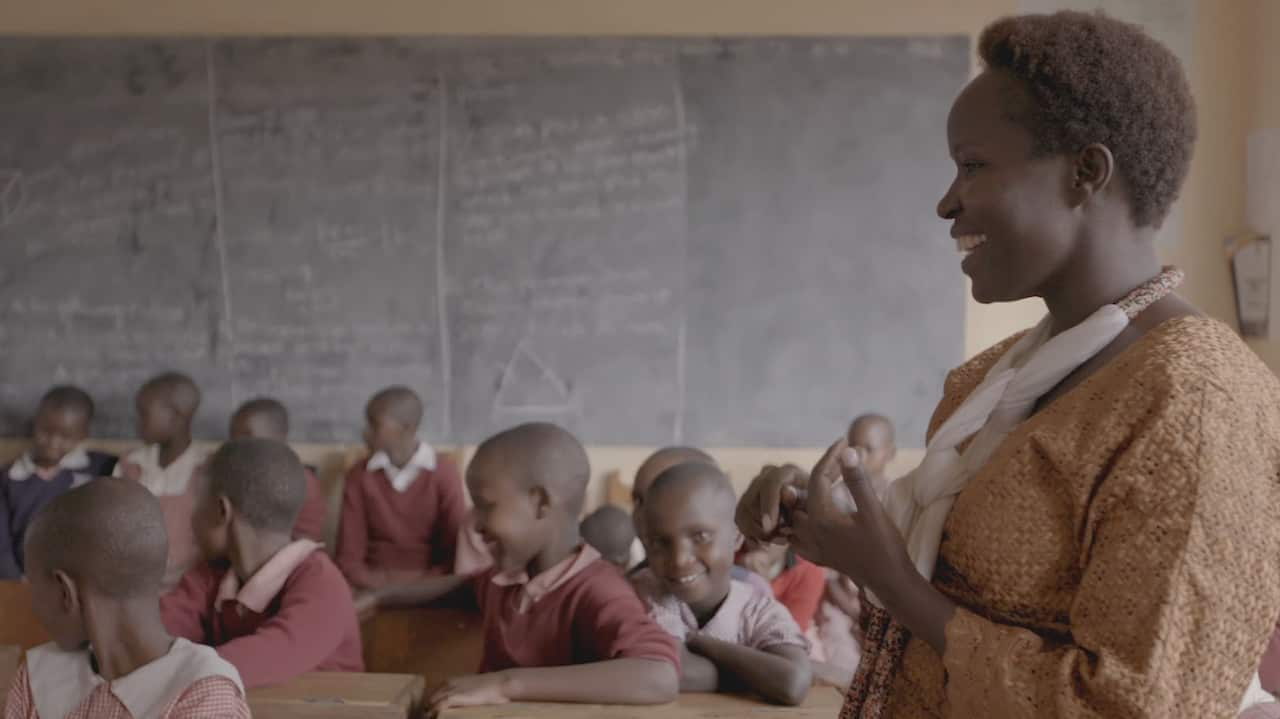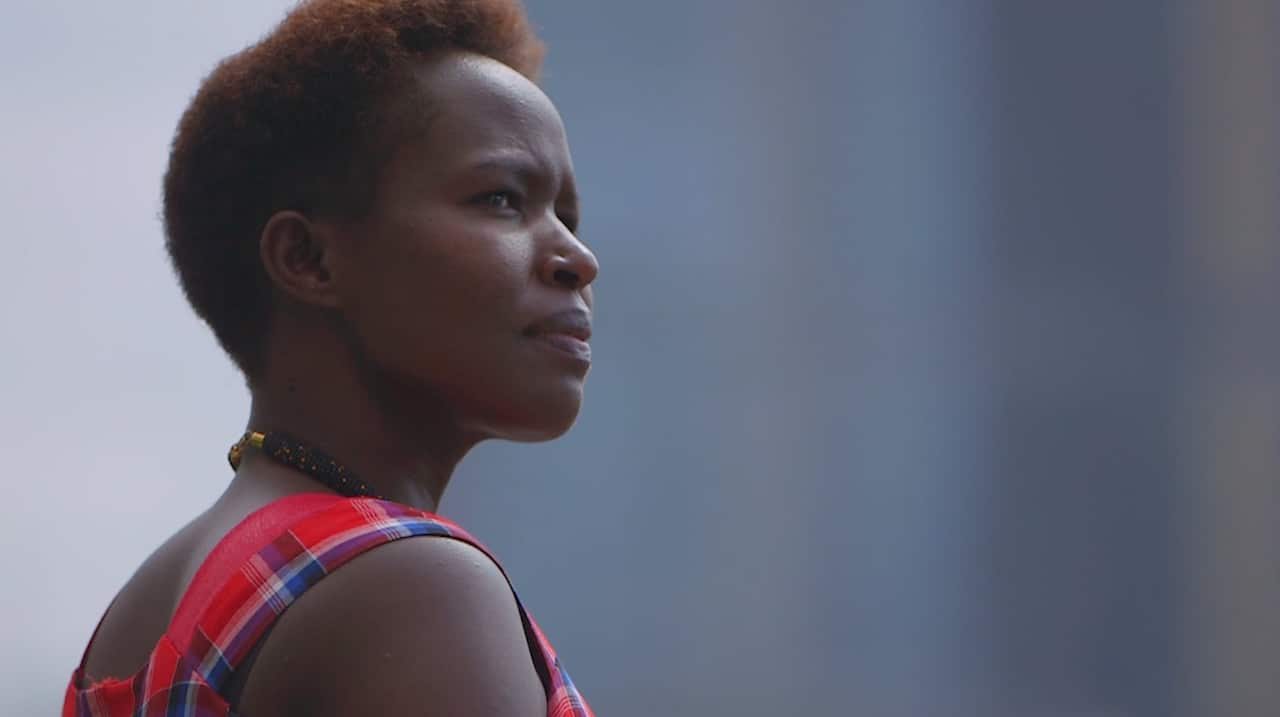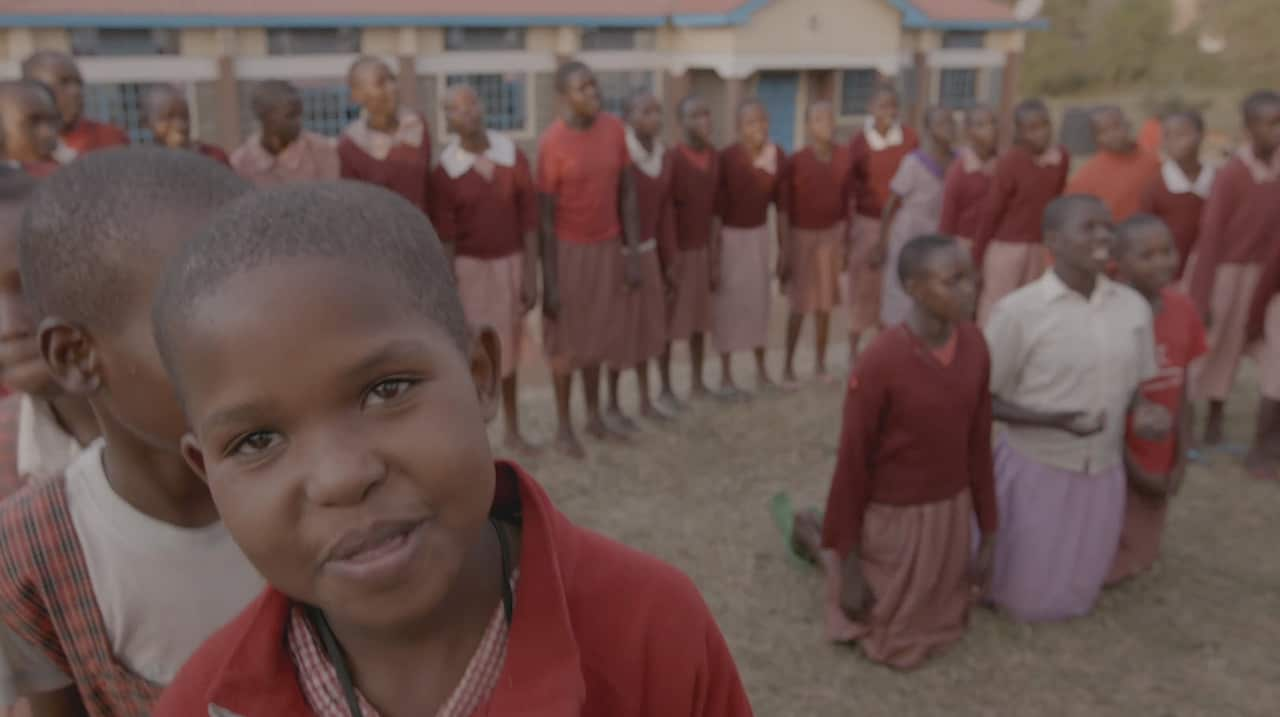Kakenya Ntaiya is one of Kenya's Maasai women. A tribe where 78 percent of women experience genital mutilation. Most girls 'get cut' before they turn 15. Kakenya was just 12.
Only 11 percent of the girls have a secondary education and 90 percent are married off before they turn 18.
Kakenya decided to do something different: she made a bargain at the age of seven that would see her become the first ever Maasai woman to have a PhD and it landed her in the United Nations.
But what she did next, is what makes her truly exceptional.
Born and raised in a small village in south-western Kenya, there was no running water, no paved roads, and no electricity.
"Women don't rest, we just go go go," she says, reflecting on her childhood.

Her father, a police officer, wasn't around very often and came home about once a year. Kakenya says those times were "never good memories" and he was often "abusive" towards her mother.
And part of growing up for her - like so many of the women around her - included surviving a horrific tradition.
"Female genital cutting in my culture is seen as a rite of passage to women. All women, all girls, they have to go through this," she says.
"It happened to me when I was 12 years old. It's a very terrifying experience because somebody cuts off your clitoris.
"There's no anesthesia. It's done... it's really horrible, it's very traumatising. There are no doctors or nurses that give you medication.
"You're supposed to heal naturally and you're not to supposed to talk about the feeling that you felt and you're not supposed to cry because we're told as Maasai women we have to be strong.
"We're talking about a 12 year old who's not supposed to cry when someone cuts off a part of their body.

"When I went through it I knew I never wanted any girl to go through what I went through, somehow I knew it was wrong.
"No girl should go through that."
Kakenya was engaged when she was five years old, so she grew up knowing that she "had a husband that was waiting for me when I reached puberty".
Her mother wanted her to go to school and when she did, she realised she loved it and found herself inspired by the lessons, her teachers and fellow students.
She struck a deal with her father, telling him that she could only go through with the ritual if he let her go back to school.
"I went back to school really determined to work hard and become a teacher," she says.
Kakenya got her PhD in America. As it turned out, she was not the first Maasai woman to be awarded a doctorate - but she chose to view that as an encouraging sign that women from her community were rising up.
Kakenya started a school for girls which now has over 230 students, with preference given to orphans, children of single mothers and girls with HIV.
This year, the first graduates will enter university.

Through award winning storytelling, The Feed continues to break new ground with its compelling mix of current affairs, comedy, profiles and investigations. See Different. Know Better. Laugh Harder. Read more about The Feed
Have a story or comment? Contact Us

